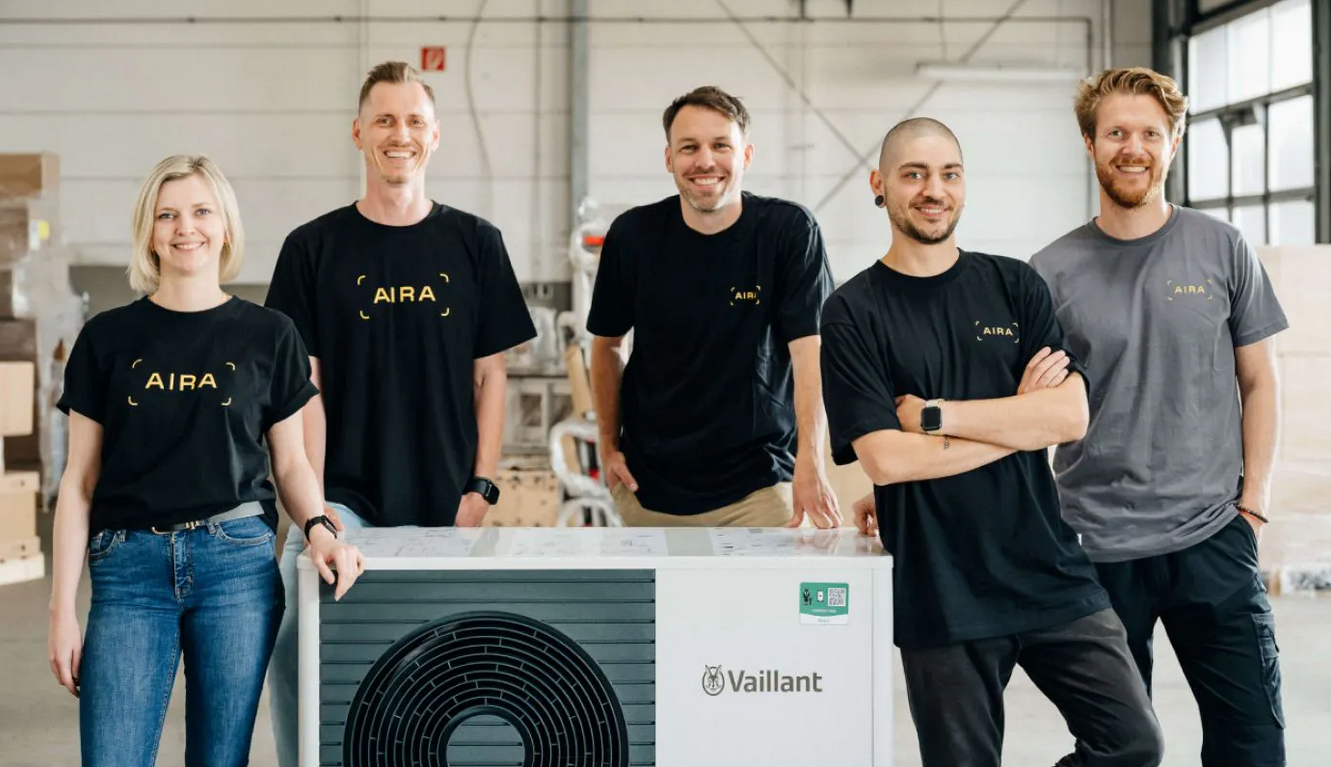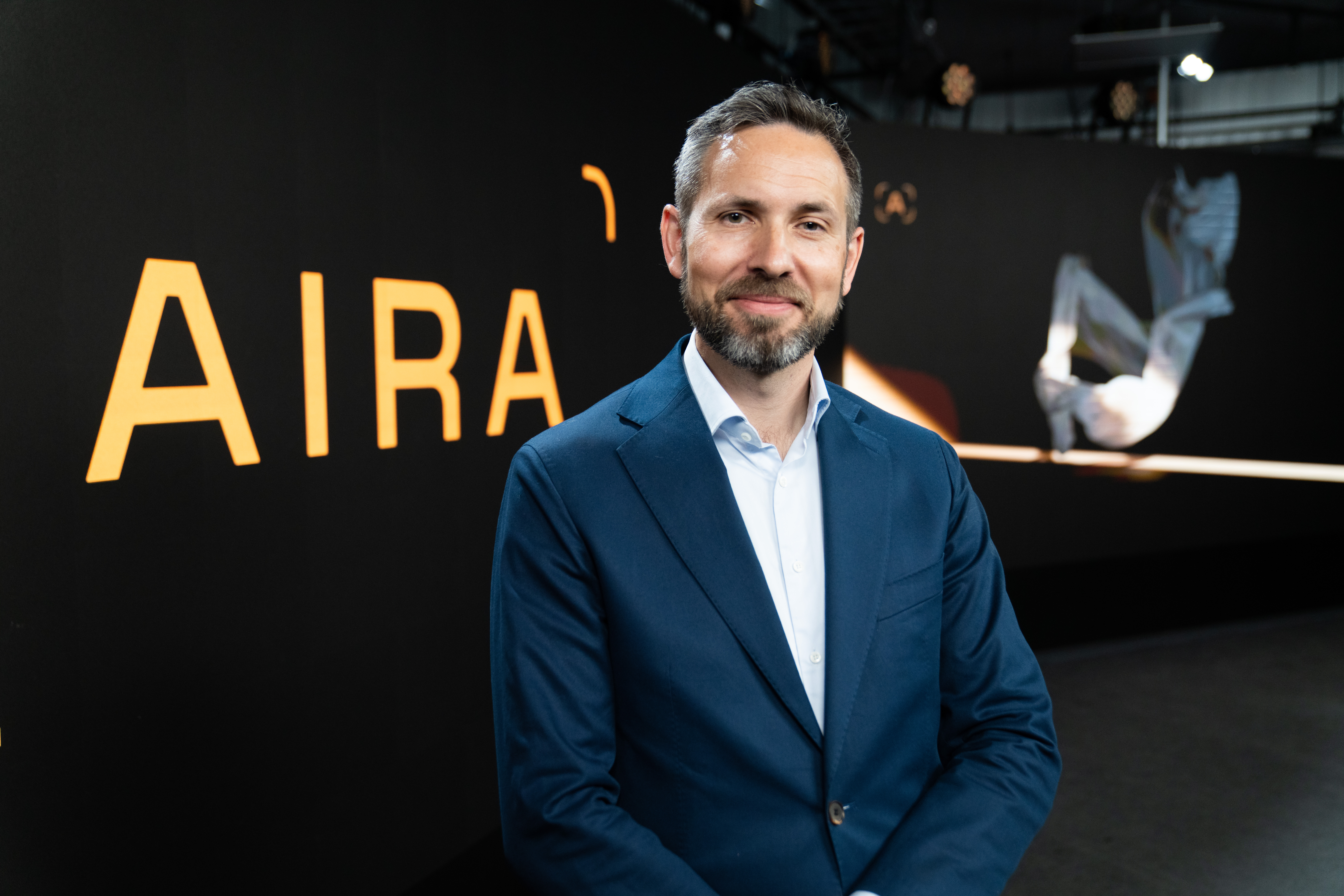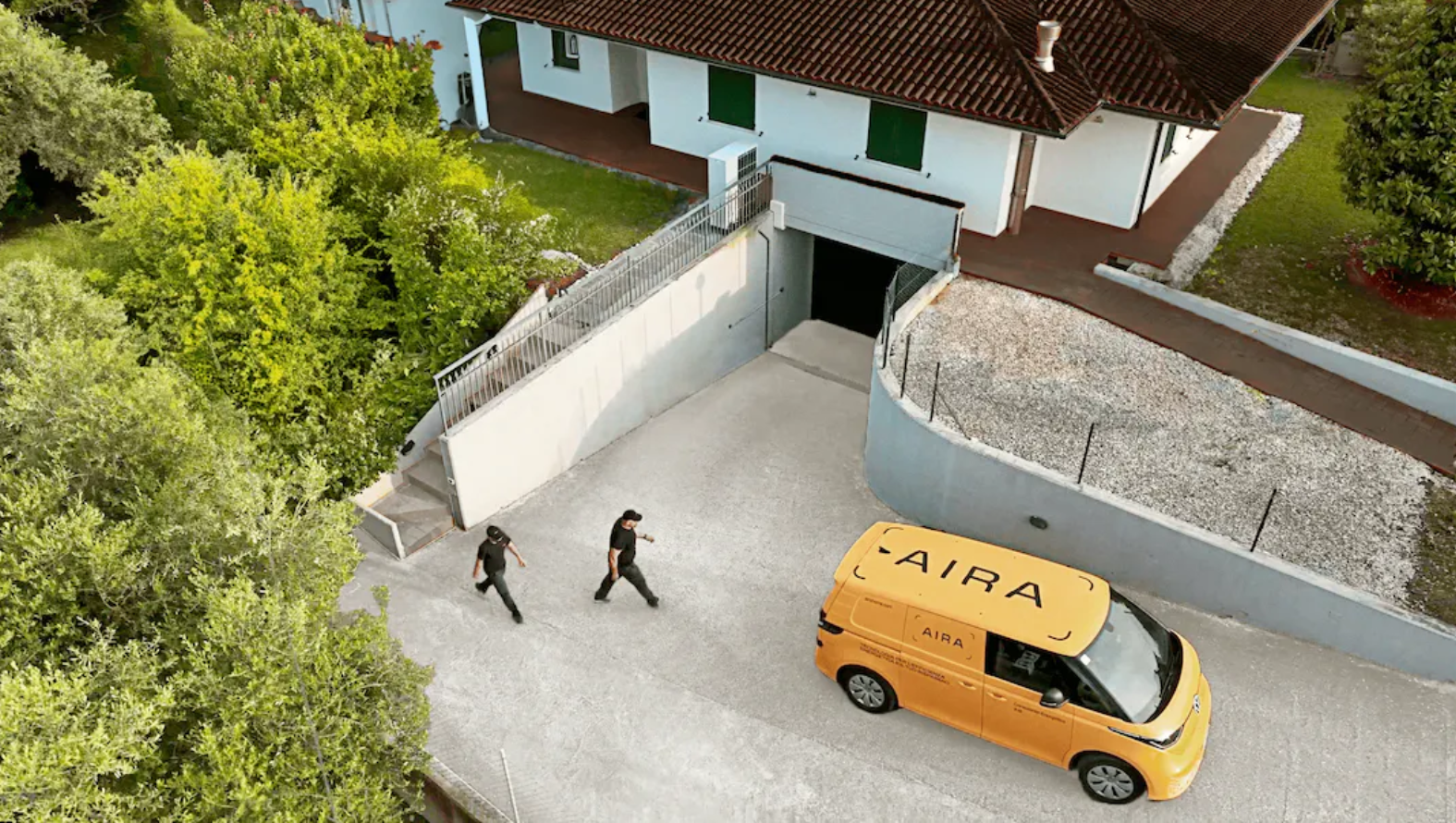Statkraft has contributed to a series B round for Aira, which is tackling a heat pump market CEO Martin Lewerth believes can reach €150bn in size every year.

We’ve seen increased corporate venture funding flowing to cleantech and renewables in recent months, but one area of the market hasn’t made many headlines: heating and cooling. Swedish heat pump provider Aira is aiming to change that.
“We are absolutely sure that by 2030, there will need to be at least 10 million heat pumps sold and installed in Europe every single year,” Aira CEO Martin Lewerth tells Global Corporate Venturing.
“Think about the market size there. If €15,000 to €30,000 is the value of installing a heat pump, and assuming we get that cost down significantly but people are still investing in battery storage to tap into grid services and dynamically use tariffs – say they spend €15,000 per household – that is a €150bn market size every single year.”
Aira is building a direct-to-consumer heat pump supply business, and it just raised €145m (approximately $158m) in a series B round featuring Statkraft Ventures, which invested on behalf of power producer Statkraft.
A heat pump uses an evaporator similar to one found in a refrigerator to absorb heat from the air outside a building, then compresses the gas molecules in the air to further heat them up. Once that hot air is condensed, it can be channelled into the building’s central heating system. The process is fully electric, unlike traditional boilers which burn natural gas, and Lewerth (below) believes it can play a big part in cutting emissions.

“If you look at what the big emission sources in Europe are, energy generation is number one and transportation is number two,” he says. “But residential heating is not far behind. Scandinavia is an outlier – it’s a pretty harsh climate and we need a lot of heat, but only 1% of emissions come from heating our homes. In the rest of Europe, it’s something like 10% to 20% of a country’s total emissions.
“That’s because, if you live in a detached, semi-detached or terrace house – and that’s 85% to 95% of all households – they are still using oil and gas for heating. Our ambition is to drive electrification and replace dirty, expensive and highly inefficient oil and gas boilers with intelligent, clean, electric heat pumps.”
Aira is the fourth startup to emerge from cleantech company builder Vargas and its predecessors include electric vehicle battery manufacturer Northvolt and H2 Green Steel, developer of a steel production technique that uses green hydrogen. They were responsible for two of the seven largest CVC deals of 2023, and while Aira is looking to benefit from similar economies of scale, it is targeting the consumer rather than the industrial market.
The way the company is doing that is through a pricing model with no upfront fee. Instead, customers pay through an all-inclusive monthly plan that incorporates installation and servicing. Aira claims its heat pumps can cut household heating costs by up to 40%, and that means it can target a wider customer base than have bought into products like heat pumps or solar panels so far.
“What we want to do is make this available and affordable for the many”
“All these things – heat pumps, solar, battery systems – have in Europe often been targeting more affluent households,” Lewerth explains. “What we want to do is make this available and affordable for the many.
“Penetration of heat pumps in Scandinavia is 60% but in the UK it’s 1%. And it’s single-digit numbers across most of Europe. About 79 million gas boilers break every year, and the vast majority are being replaced by a new gas boiler.
“But if consumers knew they could save up to 50% on their energy by installing heat pumps and other clean energy tech solutions, they would not put in a new gas boiler that’s going to be installed for the next 15 years. They would go for the more affordable, cost-saving alternative.”
Aira has already increased its workforce from about 40 a year ago to more than 600 today, having entered Germany, Italy and the UK over the past four months.
The company currently sources its systems from commercial partner Vaillant but the next step will be to build manufacturing resources so the company can start assembling its own heat pumps. The series B funding was secured alongside a €15m grant from the Polish government that will support the completion of a large-scale plant in the country that Lewerth expects to be up and running in the first half of 2025.

“We are taking over one of Volvo Group’s factories in Poland, where they have manufactured diesel buses,” he says.
“They are electrifying their bus programme and changing where they produce buses, so we are taking over their Polish plant, including the transfer of many highly qualified employees. That means we have a factory and world-class employees waiting to produce our product.”
Aira is also keen to benefit from the expertise of Statkraft, which claims to be Europe’s largest renewable energy producer. It plans to begin offering solar panels and battery storage systems alongside its heat pumps, and Lewerth sees both his company and Statkraft as part of a wider shift to clean energy. The technology is already there, he says. It just needs to be made more affordable and bundled in the right way.
“I really think this will be the next internet-level hype,” Lewerth adds. “Back in 2005, when Spotify and Netflix and all those [media streaming] services emerged, it was not because of any big invention, there were lots of little bits and pieces in place.
“We put that together and created fantastic new services, and I think that’s exactly the same thing we are about to witness in the energy system.”









